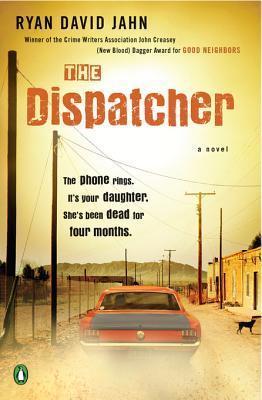What do you think?
Rate this book


435 pages, Kindle Edition
First published July 1, 2011
This one ultimately drew me in, and I went happily along for the ride, riveted to the end, but I didn't initially suspect that would be the case because of a few scenes/authorial decisions fairly early on that just to me defied belief and therefore bugged me. To wit: On the day our hero, Ian Hunt, gets the call from his daughter and he knows for the first time in seven years not only that she's alive but that she's made the call from a phone booth merely blocks away, is he really going to go on home after his shift at the 911 desk and drink his usual six pack of Guinness and go to bed like every other night? I read that and am pretty sure said "Come on, really?" aloud to an empty room. A similar scene happens later at the Motel/Food joint when he sees what he does on the diner TV and decides to head on back to his room to rest up--but at least by that point he's really hurting and knows he's miles away. Still, it seemed an unlikely reaction. Also it seemed to take an unlikely long time for him to put two and two together when his daughter gives him a pretty good description of her kidnapper and even manages to tell him his name starts with an H. How could he then be stationed outside of Henry's house--Henry whom Maggie has described to a T and on whose property some seriously implicating evidence has already been found--and still have doubts?
Such scenes seemed mostly intended to delay action and leave room for the backstory/exposition to catch up. That said, though, the action, when it happens is gritty, intense, and regularly really violent. The bad guy is really, really bad--disturbingly bad, even--while the good guy is, well, complexly good--a sympathetic character, yes, but someone who's been given reason to be well-acquainted with his own dark side.
Not to be petty, but something else made me lower my expectations very early on. On page 6 (which in my copy is the novel's fourth page) there's a sentence that starts like this: "He was also police, working out of the Tonkawa County Sheriff's Office in Bulls Mouth, just other side of the county jail...." I read that and thought, ok, a typo--not that unusual to run across--but then on the facing page, mere breaths away, there's this sentence: "Her headstone even now is planted in Hillside Cemetery just other side of Wallace Street." So now I'm thinking this phrasing must be intentional, but why? Why wouldn't the article "the" be inserted in both sentences between the words "just" and "other side of"? Who talks like that? It's "just the other side of" whatever, right? It's a quibbling thing, I know, but it's also the kind of thing that takes me right out of the story.
Fortunately, there are many more instances of what's right with the writing. The dialogue is mostly smooth, and there are eloquent passages throughout. This one stands out to me as a good example of the latter, probably because I know the area and Jahn clearly does, too:
In the two hundred miles between Junction and Fort Stockton, Texas, the landscape changes. the trees give way to shrubbery and low yellow flowers. The yellow flowers stretch from dry earth or dead grass. Desert hills erupt from the flat earth like goiters, and Interstate 10 cuts through many of them, leaving dynamited and scraped cliffs butting up to the asphalt and stacked up beside you in multi-colored layers descending into the past. The moisture leaves the air, and cacti soak up the sun, their fat pads like the flippers of some lost exotic underwater creature waving at you from the side of the road. Ancient stripper-well pumpjacks like prehistoric birds peck at the ground in the Permian Basin oil fields, moving in slow, sleepy, repetitious motion. The traffic thins to nothing but the occasional Mack truck hauling a load from coast to coast, driver red eyed and tweaked out, or some other lonesome traveler. Occasional desert rabbits splatter the shoulders of the road, revealing their hearts to you. Past the halfway point between these two towns, somewhere around Bakersfield, great fields of windmills turn slowly in the distance like ceiling fans on a mild day. Everything seems to move slowly in this mean desert heat, even your vehicle with the needle past eighty. You drive and drive but never seem to get anywhere.
That picture is pretty perfect and helps explain the comparisons of this book to Cormac McCarthy's No Country For Old Men, along with the violence that sort of brackets such passages.